View the biographies for our education faculty.
Faculty Biographies
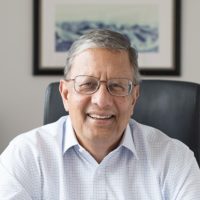
Abul Abbas, MD
University of California, San Francisco
Dr. Abbas received his MD from the All India Institute of Medical Sciences in India, completed training in Pathology at the Brigham & Women’s Hospital and Harvard and joined the faculty at Harvard Medical School and the Brigham and Women’s Hospital, where he rose to become Professor of Pathology and Head of the Immunology Research Division. In 1999, he moved to the University of California San Francisco as Professor and Chairman of the Department of Pathology, and served in this role until 2018. Dr. Abbas has received several teaching awards at Harvard and UCSF, and numerous honors, including election to the National Academy of Medicine (formerly the Institute of Medicine of the National Academy of Sciences) and as a Fellow of the American Academy of Arts and Sciences. His research interest is the control of immune responses, self-tolerance and autoimmunity. He has published more than 200 peer reviewed papers and invited reviews, and is an author of two widely used textbooks of Immunology, as well as Robbins & Cotran’s Pathologic Basis of Disease.
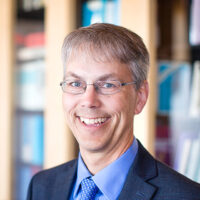
Mark Anderson, MD, PhD
University of California, San Francisco
Dr. Anderson is a Professor in the UCSF Diabetes Center and a recognized expert in the genetic underpinnings of autoimmune diseases and the control of immune tolerance. He received his doctorate in immunology in 1992 and his medical degree in 1994 from the University of Chicago. He completed a residency and Chief Residency in Internal Medicine at the University of Minnesota and went on to complete an Adult Endocrinology Fellowship at the Massachusetts General Hospital and Harvard Medical School. While at Harvard, Dr. Anderson developed a novel genetic mouse model of a human autoimmune disorder called Autoimmune Polyglandular Syndrome Type 1 (APS1) that involves a deficiency in the Autoimmune Regulator (Aire) gene. Through his work we have come to appreciate that Aire is a major checkpoint of immune tolerance in the thymus and his lab continues to further unravel mechanisms by which this pathway operates. Dr. Anderson has won several important awards including election to The Pew Scholars Program, The American Society of Clinical Investigation, The American Association of Physicians, and The UCSF Byers Award. Mark currently holds the Robert B. Friend and Michelle M. Friend Endowed Chair in Diabetes Research and also serves as Director of UCSF Medical Scientist (MD/PhD) Training Program, Research Director of the UCSF Diabetes Center, and also as Co-Chair of the Steering Committee of the UCSF Immunology Program.
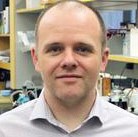
Paul Bryce, PhD
FOCIS Education Committee
After training in the UK, Paul Bryce moved in 1999 to Harvard Medical School to research allergy and immunology at Boston Children’s Hospital. In 2005, he moved to the Feinberg School of Medicine at Northwestern University in Chicago. During this time, his group were focused on mast cell biology, encompassed both clinical and preclinical approaches to researching food allergy, eosinophilic esophagitis and other allergic diseases. In 2017, Paul moved back to the east coast to head the cluster of Type 2 Inflammation & Fibrosis in the Immunology & Inflammation Therapeutic Area at Sanofi. After four years at Sanofi, Paul is now the Executive Director, Head of Discovery for ImmuneID.
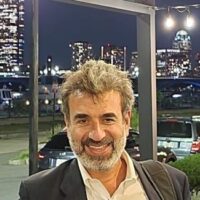
Emanuele de Rinaldis, PhD
Sanofi US
Emanuele de Rinaldis joined Sanofi in 2017 and is serving as the Global Head of Global Precision Medicine and Computational Biology (PMCB) at Sanofi.
PMCB combines the use of disease data, advanced analytics, digital pathology, functional genomics, and high-throughput profiling technologies to increase Sanofi’s pipeline success and pace.
Our combined use of data science and advanced technologies allows for a deeper understanding of disease etiology at the cellular and molecular level, the translation of these findings into novel target hypotheses, and the devising of data-driven strategies for patient stratification and precision medicine.
Emanuele de Rinaldis has extensive experience in academia, biotech, and pharmaceuticals, discovering and applying systems biology, and high-throughput technologies, to enable precision medicine therapies in oncology and immunology. He published > 60 articles in high-impact peer-reviewed journals, including Nature, Nature Genetics, Nature Communications, Human Molecular Genetics, Blood, Lancet, and others.
Prior to joining Sanofi, he was the Head of Translational Bioinformatics and an Honorary Senior Lecturer at King’s College of London/BRC (NHS), Senior Scientist at Merck MRL, and a Scientific Software Engineer and Group Leader at Lion Bioscience AG.

Stephanie Eisenbarth, MD, PhD
Northwestern University
Dr. Eisenbarth is the Chief of Allergy and Immunology at the Northwestern University Feinberg School of Medicine. Eisenbarth is an internationally renowned immunologist whose research focuses on how dendritic cells, B-cells and T-cells interact to induce antibody responses. She is supported by grant funding from the National Institutes of Health and numerous foundations for her work studying genetic factors in allergy and translational immunology. She is a member of the American Society of Clinical Investigation and numerous other professional associations, serves as the associate scientific advisor for the journal Science Immunology, and has published many peer-reviewed papers, editorials and review articles in journals including Science, Nature, Journal of Allergy and Clinical Immunology, Immunity, Journal of Experimental Medicine and more.
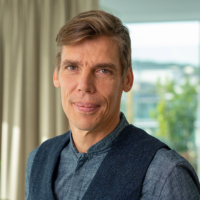
Magnus Fontes, PhD
Institut Roche
Magnus Fontes holds a PhD in Mathematics and is General Manager of Institut Roche in Paris; Roche’s institute for collaborative and multidisciplinary biomedical research, https://institut.roche.com/. Fontes is adjunct professor of mathematics at Lund University, Sweden, and co-founder and scientific advisor of the bioinformatics software company Qlucore, www.qlucore.com.
Magnus Fontes has extensive industrial and academic experience. For example; 2003-2014 Head of the Centre for Mathematical Sciences at Lund University, Sweden; 2014-2017 Director at the Centre for Bioinformatics Biostatistics and Integrative Biology (C3BI) and Head of the International Group for Data Analysis, Institut Pasteur, Paris, France. Then 2018-2020 Principal Scientist and Head of Systems Cancer Immunology at Genentech, California, USA, before taking up his current role as General Manager of Institut Roche in 2020.
Fontes has held several commissions of trust, e.g.: 2012-2013 President of the European Consortium for Mathematics in Industry (ECMI); 2008-2015 Vice chairman of the Swedish National Committee for Mathematics at the Royal Swedish Academy of Science; 2015-present Member of the Royal Physiographic Society of Lund and 2015-present Member of the Education Committee of FOCIS.
Fontes’ research interests and publications cover fundamental mathematics as well as mathematical modeling applications, including development of methods and algorithms targeting biomedical and clinical applications. His current research is focused on modeling of pathogen-immune system interactions and systems immunology, trying to uncover functional biological mechanisms.
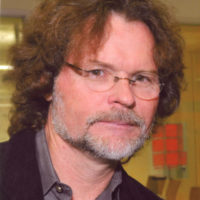
Lewis Lanier, PhD
University of California, San Francisco
Lewis L. Lanier is the J. Michael Bishop MD Distinguished Professor and Chairman of the Department of Microbiology and Immunology at the University of California San Francisco and Director of the Parker Institute for Cancer Immunotherapy at UCSF. Dr. Lanier received his Ph.D. from the University of North Carolina – Chapel Hill. After postdoctoral studies, he joined the Becton Dickinson Monoclonal Center, advancing to Associate Director. In 1990, he moved to the DNAX Research Institute, where he was Director of Immunobiology. In 1999, Dr. Lanier returned to academics as a Professor on the faculty of UCSF. His research group studies Natural Killer (NK) cells, which recognize and eliminate cells that have become transformed or infected by viruses. Dr. Lanier is an American Cancer Society Professor and in 2010 was elected to the US National Academy of Sciences, in 2011 was elected to the American Academy of Arts and Sciences, served as President of the American Association for Immunologists from 2006-2007 and received the AAI Excellence in Mentoring Award in 2017.
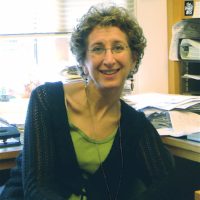
Terri Laufer, MD
University of Pennsylvania
Terri Laufer is a rheumatologist and immunologist at the University of Pennsylvania. Her laboratory studies the interactions between CD4+ T cells and MHC class II-positive antigen presenting cells that mediate responses to pathogens and autoimmunity.
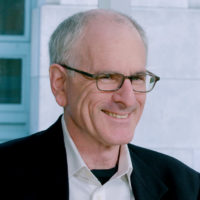
Andrew Lichtman, MD, PhD
Brigham and Women’s Hospital
Dr. Lichtman received an A.B degree of Bowdoin College in 1974, and MD and PhD (Biophysics) degrees from the University of Rochester School of Medicine in 1981. He trained in anatomic pathology and completed a post-doctoral research fellowship at the Brigham and Women’s Hospital between 1982-1985. He is a diplomat of the American Board of Pathology, and currently holds the position of Professor of Pathology at Brigham and Women’s Hospital and Harvard Medical School. He has been the Principal Investigator of an N.I.H. -funded research laboratory for over 30 years. His current research focuses on T cell-mediated responses in cardiovascular diseases, including atherosclerosis and myocarditis. Dr. Lichtman has taught in and directed Pathology and Immunology courses at Harvard Medical School (HMS), and taught postgraduate Immunology courses worldwide. He is a coauthor of two widely used text books of immunology, and is a past chair of the Education Committee and the Publications Committee of the Federation of Clinical Immunology Societies (FOCIS). He has received numerous teaching awards at HMS, and is the recipient of the 2014 Robbins Distinguished Educator Award of the American Society of Investigative Pathology.

Carrie L. Lucas, PhD
Yale University
Dr. Carrie L. Lucas received her PhD from Harvard Medical School and her postdoctoral training from the National Institutes of Health, NIAID. Her laboratory uses cutting-edge technology and modeling to investigate cellular and biochemical defects in cells from patients with inherited immune disorders to dissect molecules and pathways critical for human immunity. A major focus of her work has been on phosphoinositide 3-kinase (PI3K) signaling and mechanisms of disease in immunodeficient patients with activating mutations in PI3K subunits.

Jonathan Maltzman, MD, PhD
Stanford University
Dr. Maltzman is Associate Professor of Medicine and Director of Basic Science Research in Nephrology at the Stanford University School of Medicine. His labs studies tolerance, Tregs and immune responses to latent virus in solid organ transplant.
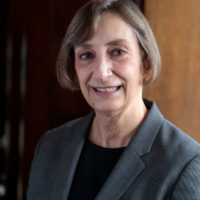
Cathryn Nagler, PhD
University of Chicago
Cathryn Nagler graduated with honors from Barnard College, Columbia University. She obtained her Ph.D. from Vilcek Institute of Biomedical Science at N.Y.U. and did a postdoctoral fellowship at M.I.T. She was Associate Professor of Pediatrics (Immunology) at Harvard Medical School prior to joining the University of Chicago in 2009. Dr. Nagler serves in national and international leadership roles, many of which are related to publication and teaching, for the American Association of Immunologists, the Society for Mucosal Immunology and Federation of Clinical Immunology Societies. She also participates in numerous review panels. Dr. Nagler received the Distinguished Faculty Award for Leadership in Program Innovation from the University of Chicago in 2017. She was listed among Crain’s Chicago Business Tech Top 50 Women in 2018 and Notable Women in HealthCare in 2019 for her work with her academic start-up company ClostraBio. Academic honors include the American Academy of Allergy, Asthma and Immunology (AAAAI) Foundation and Louis M. Mendelson Award Lectureship and the Siegel Lectureship at UCLA. She was elected as a Distinguished Fellow of the American Association of Immunologists (AAI) in 2020. She was recently named AAI Program Chair and, as such, is an ex officio member of the AAI Leadership Council.
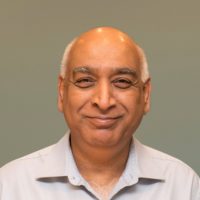
Shiv Pillai, MD, PhD
Ragon Institute of MGH, MIT and Harvard
Dr. Pillai completed his medical studies at the Christian Medical College, Vellore, and went on to obtain a PhD in Biochemistry from Calcutta University. He was an investigator at the Kothari Center for Gastroenterology in Calcutta until 1983, and was a postdoctoral fellow at the Whitehead Institute in Cambridge from 1984-1988. Since 1988 he has been a faculty member at the Cancer Center and the Department of Medicine at Massachusetts General Hospital and Harvard Medical School. He discovered surrogate light chains and the pre-B receptor as a post-doctoral fellow, and his laboratory at MGH also discovered the role of Btk in B cell signaling. His group has largely focused on studies on B lymphocyte development, signaling, tolerance, and more recently on the pathogenesis of human fibrotic autoimmune disorders. Dr. Pillai has been on the Editorial Boards of the Journal of Clinical Investigation and the Journal of Immunology, is the director of immunology courses taught at Harvard College and Harvard Medical School, and teaches in a number of other courses at both institutions. He has received numerous teaching and mentoring awards, including the Irving London Award and the Thomas McMahon Award, is the author of Lymphocyte Development, and is co-author with Abul Abbas and Andrew Lichtman of Cellular and Molecular Immunology and Basic Immunology.
